Mr Obonyo Alex of The Kalongo Times sat down for an interview with Reverend Samuel Okot Lamot, a very passionate man of God, an Environmentalist and a Farmer and, discussed his tree planting business and the need to conserve our environment.
Mr Obonyo Alex kicked off by asking him to explain what inspired him down this path and his insights on community participation in this cause.
Bishop Lamot in his own words
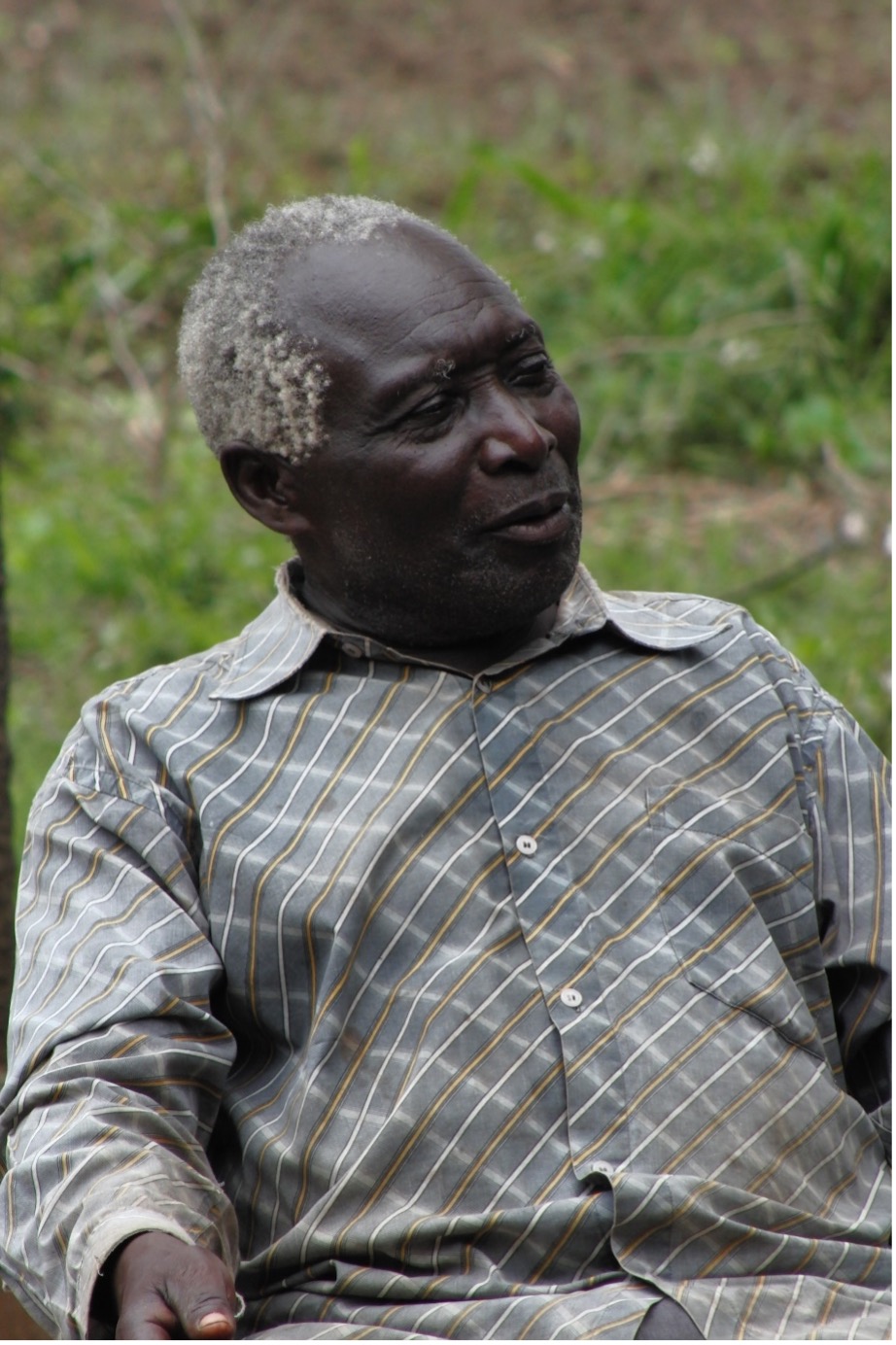
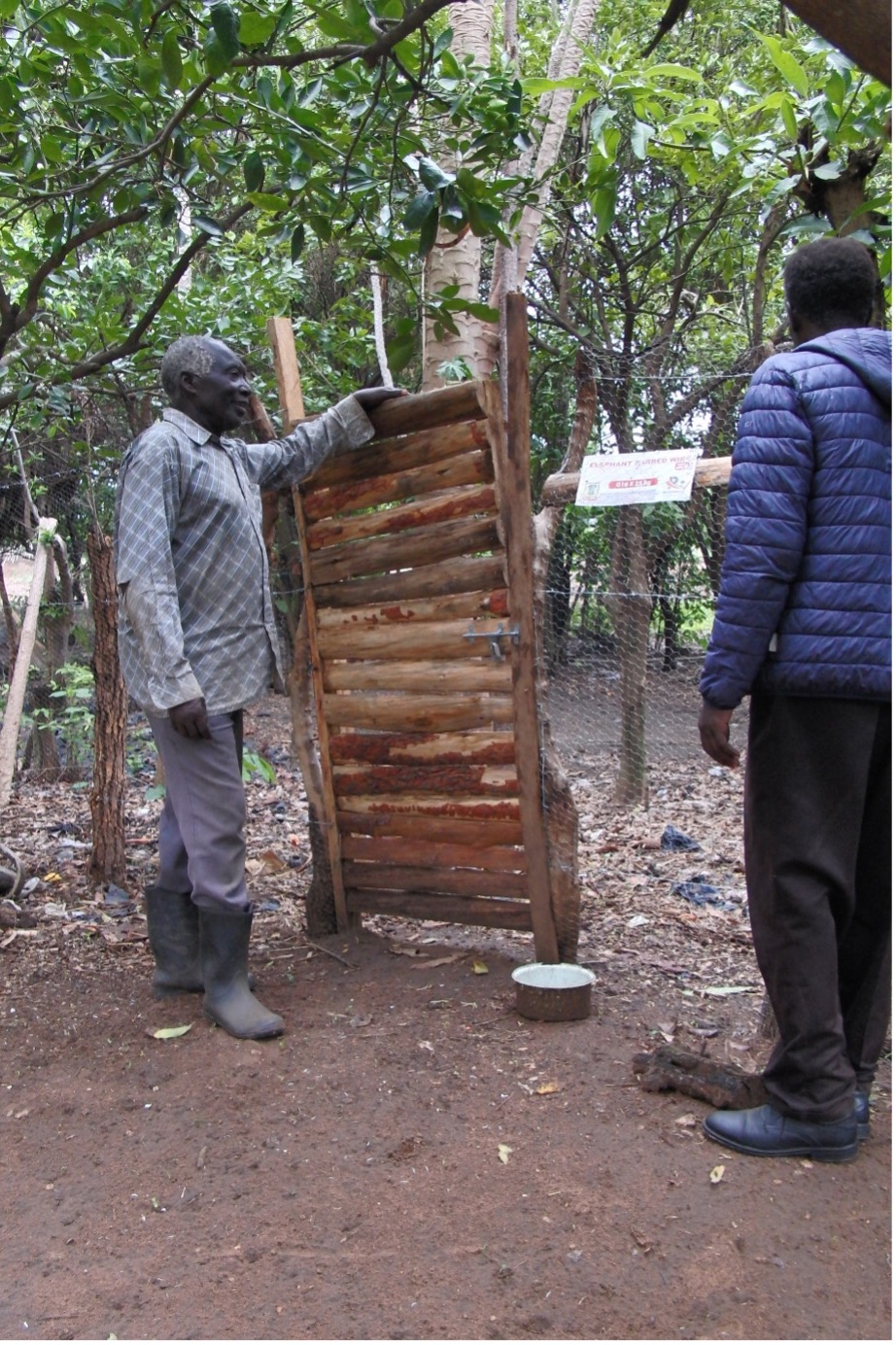
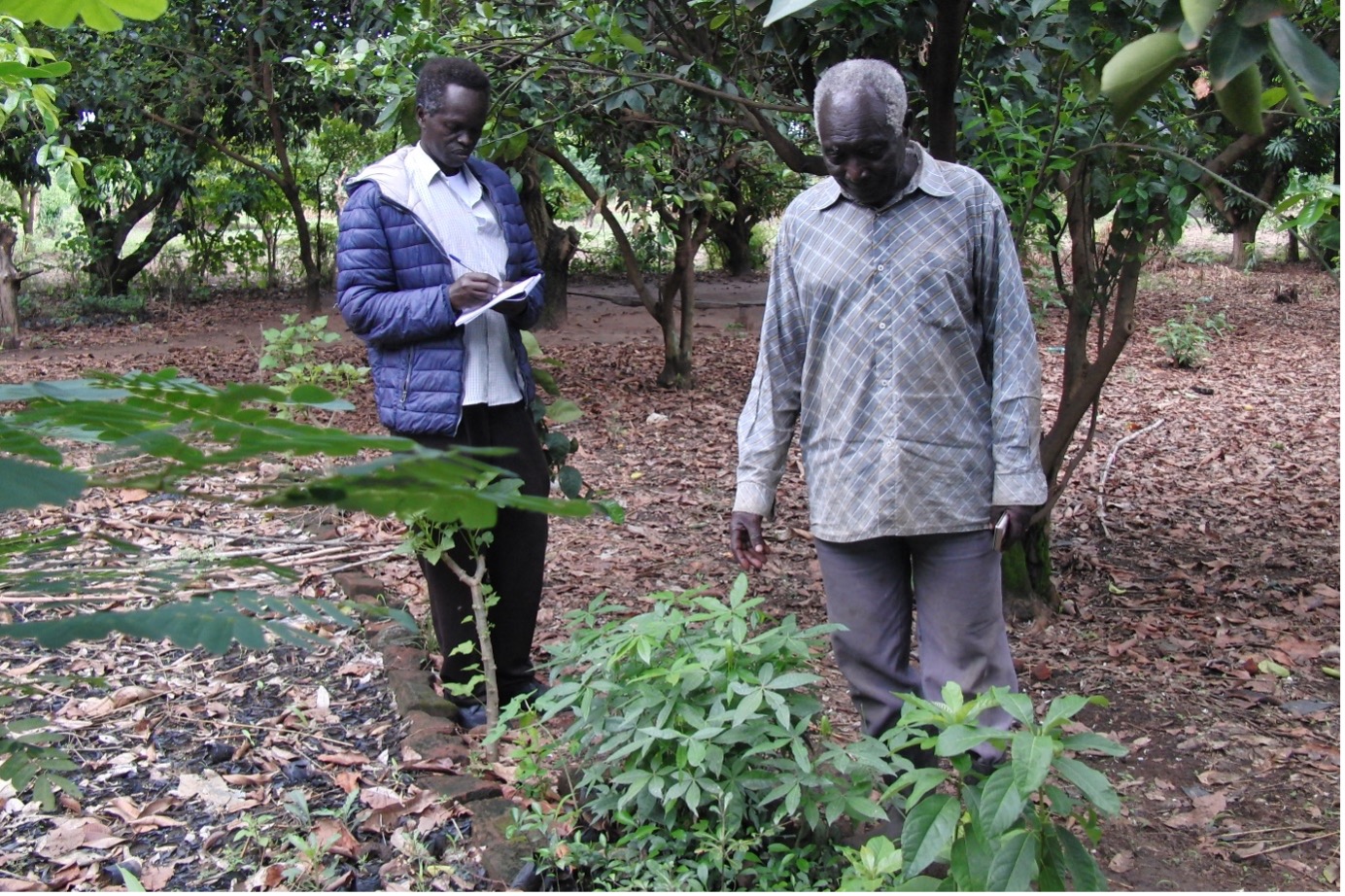
I am Reverend Samuel Okot Lamot aged 74 years old the Bishop of Chosen Evangelical Revival (CER) Ministry operating mainly in the Eastern Acholi Sub-Region. I reside in Limaro Ward Kalongo Town Council. I am a shepherd, inspirational and motivational speaker, farmer and environmentalist.
I am devoted to the preservation of the environment and its promotion for two basic reasons;
- Planting trees help us fight poverty, one does not remain young and able bodied forever, there comes a time when we become old and therefore weak and incapacitated due to infirmity and age and this more than often affects one’s ability to engage in any meaningful agriculture activity (especially in rural community settings) that can enable putting food on the table and subsequently living a normal and happy life that is not devoid of the basic necessities of life; hence the need to secure the future by investing in tree planting at an earlier age as a source of guaranteed income for the future.
- The environment in this part of the country has suffered tremendously since the time people were incarcerated in camps due to the insurgency that gripped Northern Uganda, many people have engaged in unscrupulous felling of trees for charcoal, firewood and timber without planting trees in replacement of those cut and this trend has led slowly to the depletion of the ecosystem and subsequent climate change as a resultant by product.
This then prompted me to engage in promoting tree planting and since then, quite a number of people have embraced it and have over the years reaped from the harvest on their investment.
When was this initiative birthed?
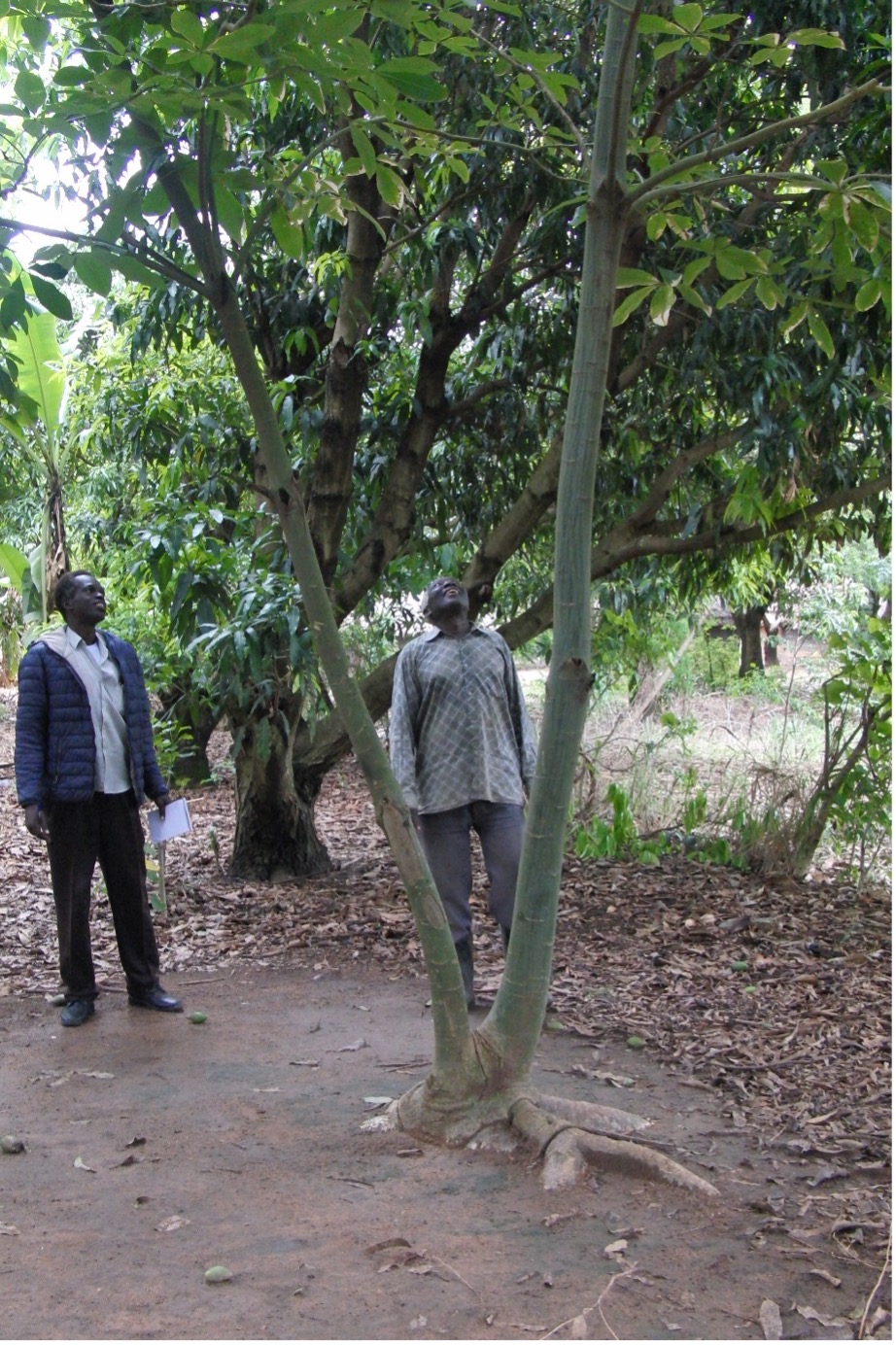
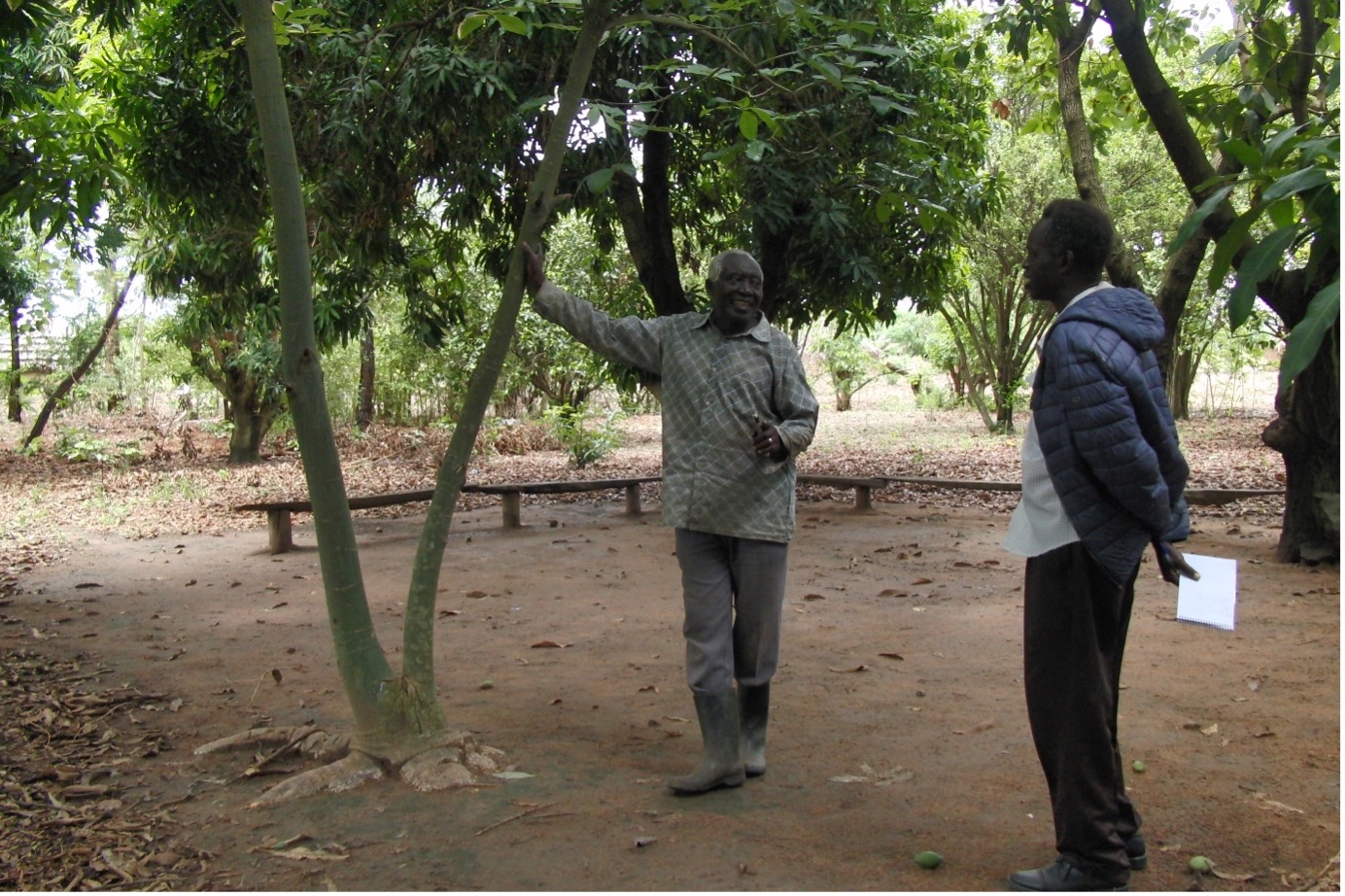
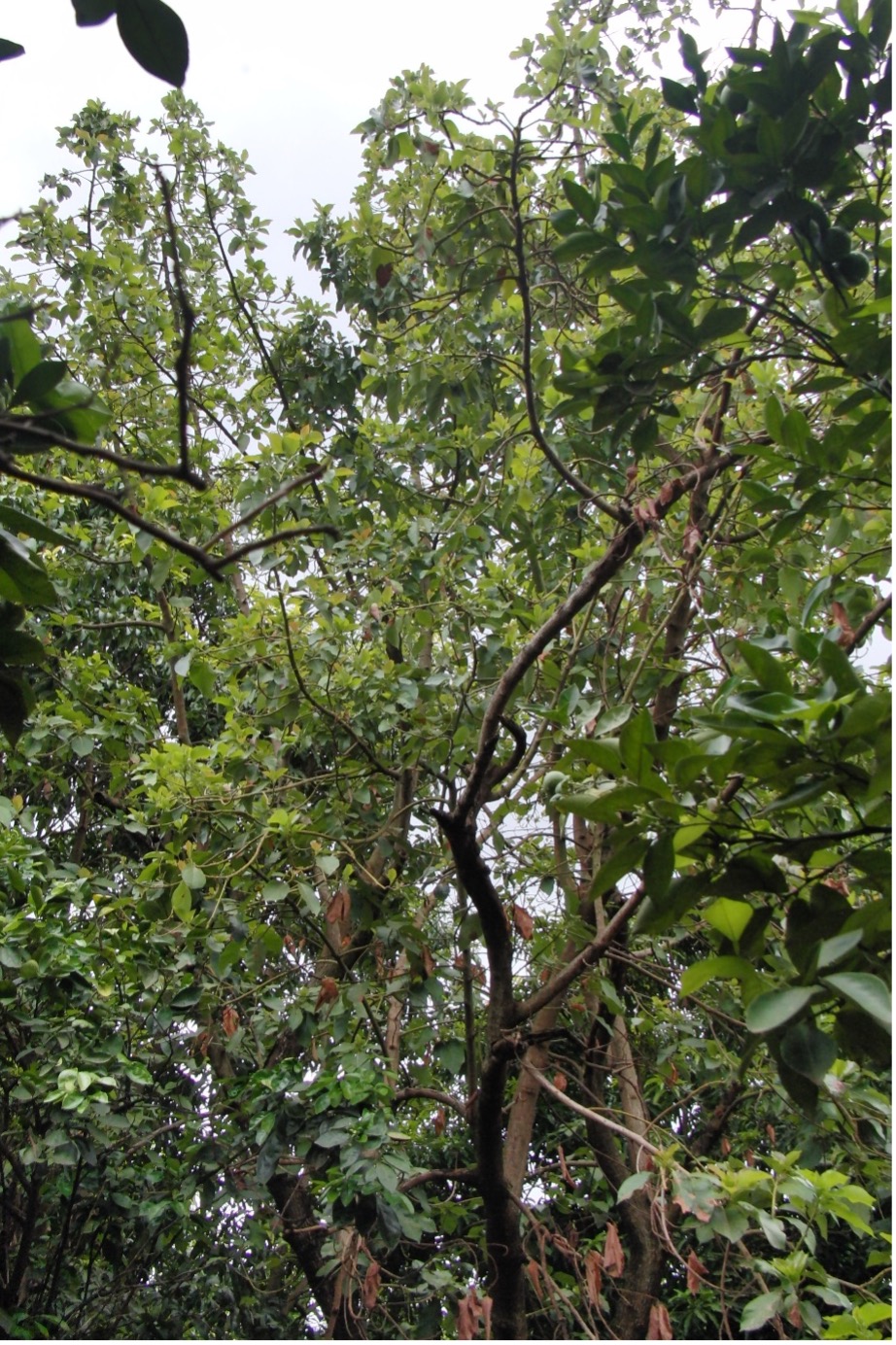
Upon getting the inspiration, I then started engaging in this project in 2007, about 12 years ago. The first stage was to identify space which was readily available in my backyard located in Nimaro Ward, Kalongo Town Council, Agago District in Northern Uganda. I started it as a personal project with the sole goal of improving the livelihood of my family, but over the years has transformed it into a community focused initiative.
What kind of activities are you engaged in?
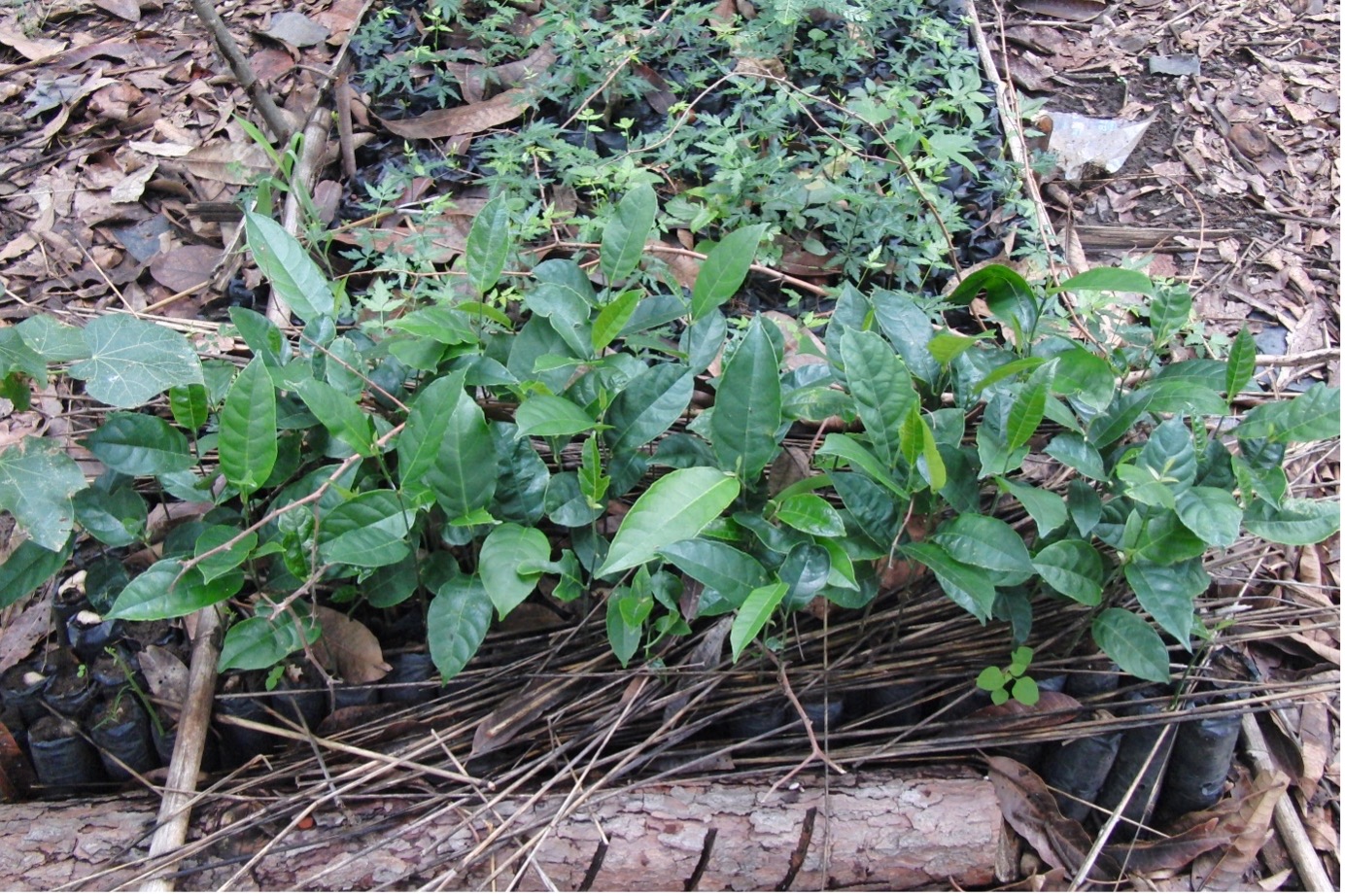
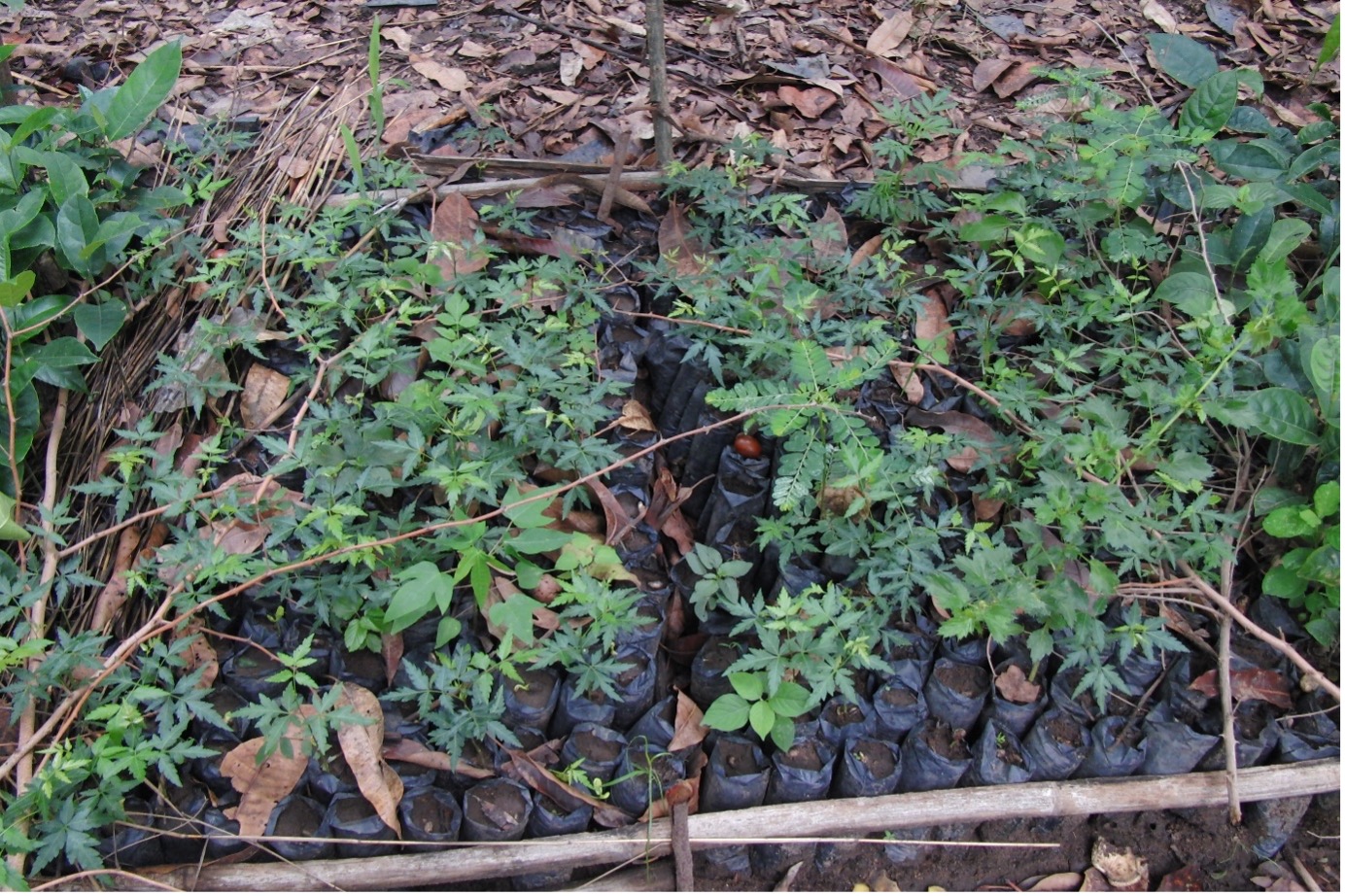
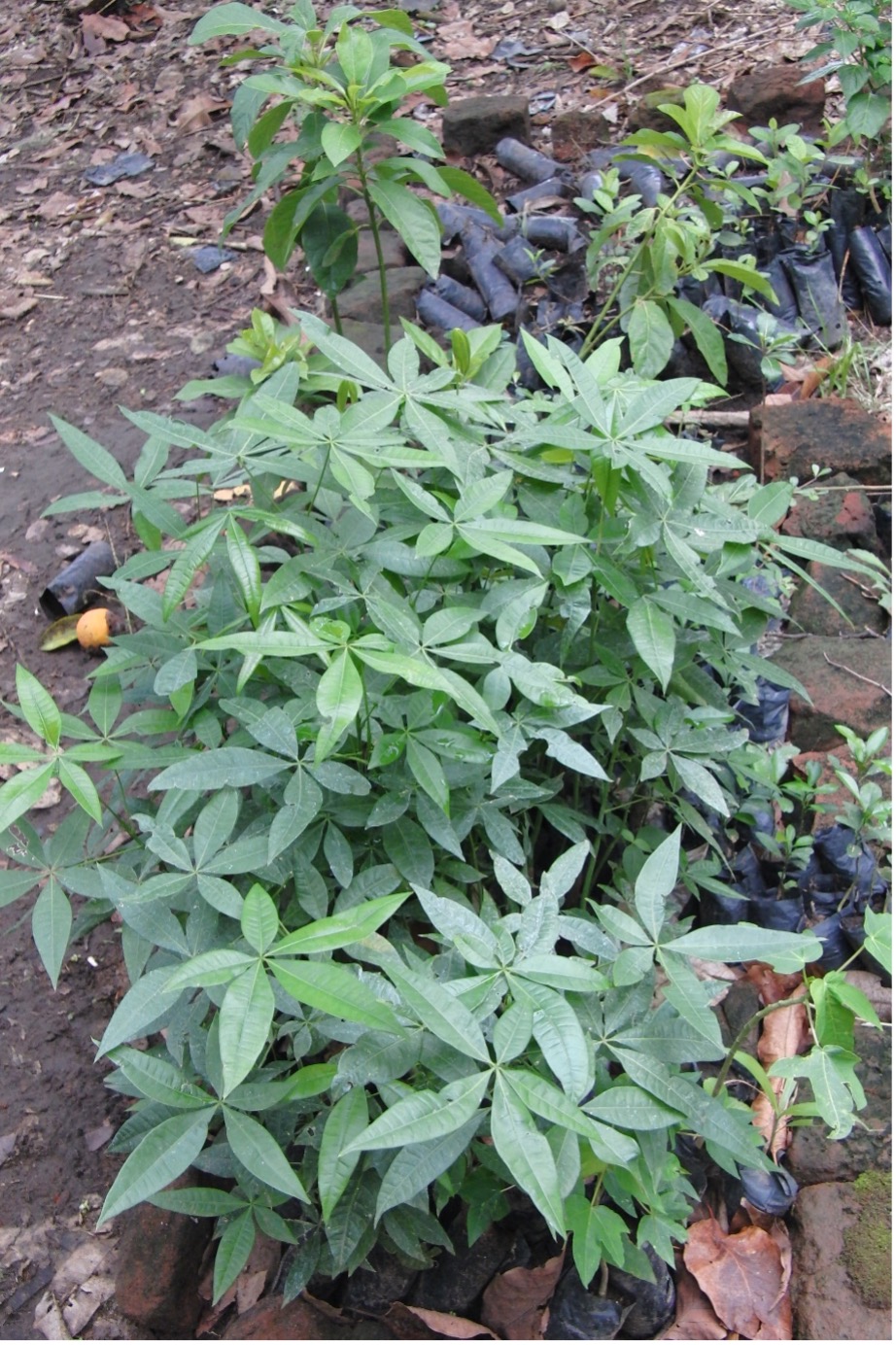
I started by putting up nursery beds for oranges, pine, tik and eucalyptus among others. I also engaged in planting vegetables which takes a shorter time to grow and mature. These are the major activities I am engaged in.
As I have mentioned earlier, with the idea of securing the future; this has been made possible in terms of food availability and creating a one-stop centre for solutions to my needs right in my backyard; where I am guaranteed food and income, especially when times are hard.
This is quite timely especially when advanced age creeps in and the body slows down its capability to engage fully in productive work.
I have also taken keen interest in propagating and planting fruits like mangoes, oranges, pawpaws, ovacado, mafenis, guavas, passion fruit and many others that provide nourishment for the body but also income that can enable me to buy carbohydrates, proteins and fatty foods needed for a balanced diet. I also deal in trees for timber; both soft and hard wood like tik, pine, Muvule, Eucalyptus and a few others. I have also set up to rear chicken, the perimeter fence is now ready, what remains is erecting a chicken shade within the fence. I envision this project as a boost to my income and as a relatively lighter task (bearing in mind our advanced age) to manage as the chicken will be enclosed and will largely feed themselves from the natural feeds they get from within their enclosed environment although we shall also provide other additional feeds from time to time.
How much do you sell the seedlings you propagate in your backyard?
It depends on the cost of the seeds, other inputs involved and what other things it takes to nurture them in the nursery beds. But generally, each seedling ranges from Uganda shilling 500 to 2,000 a piece. But like I said, the determinant price largely is dependent on the overall cost of the inputs.
Tell us how long some of these trees take to mature?
Exotic variety of shea nut tree takes at least five years, groundnut tree takes three years, oranges the Washington Novel takes 3 years before they start bearing fruits. Other trees also range from 3 years and above. Afrizella African (Beyo) can take up to 20 years to mature.
How do you manage work in your plantation as you are a person of advanced age?
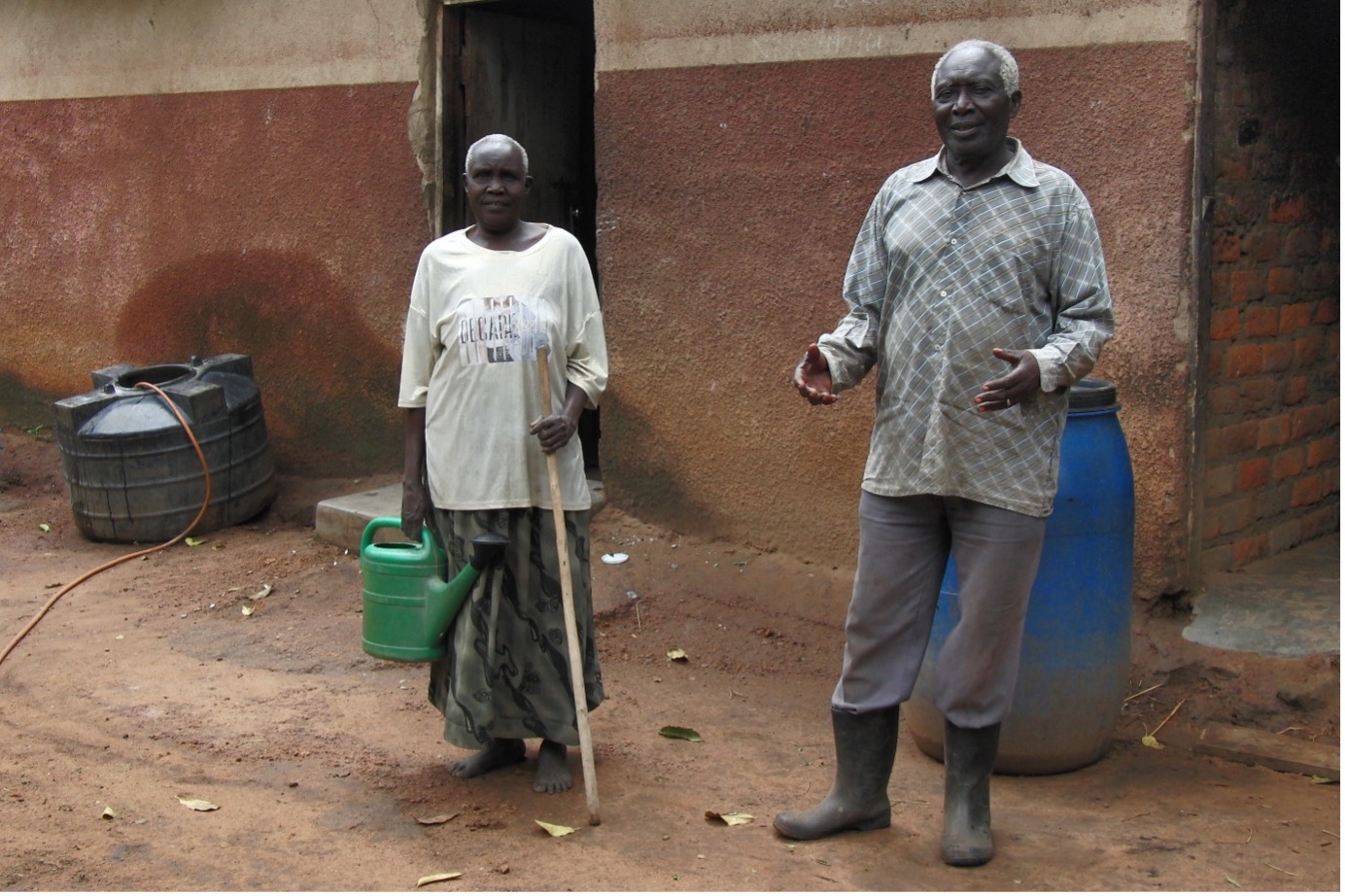
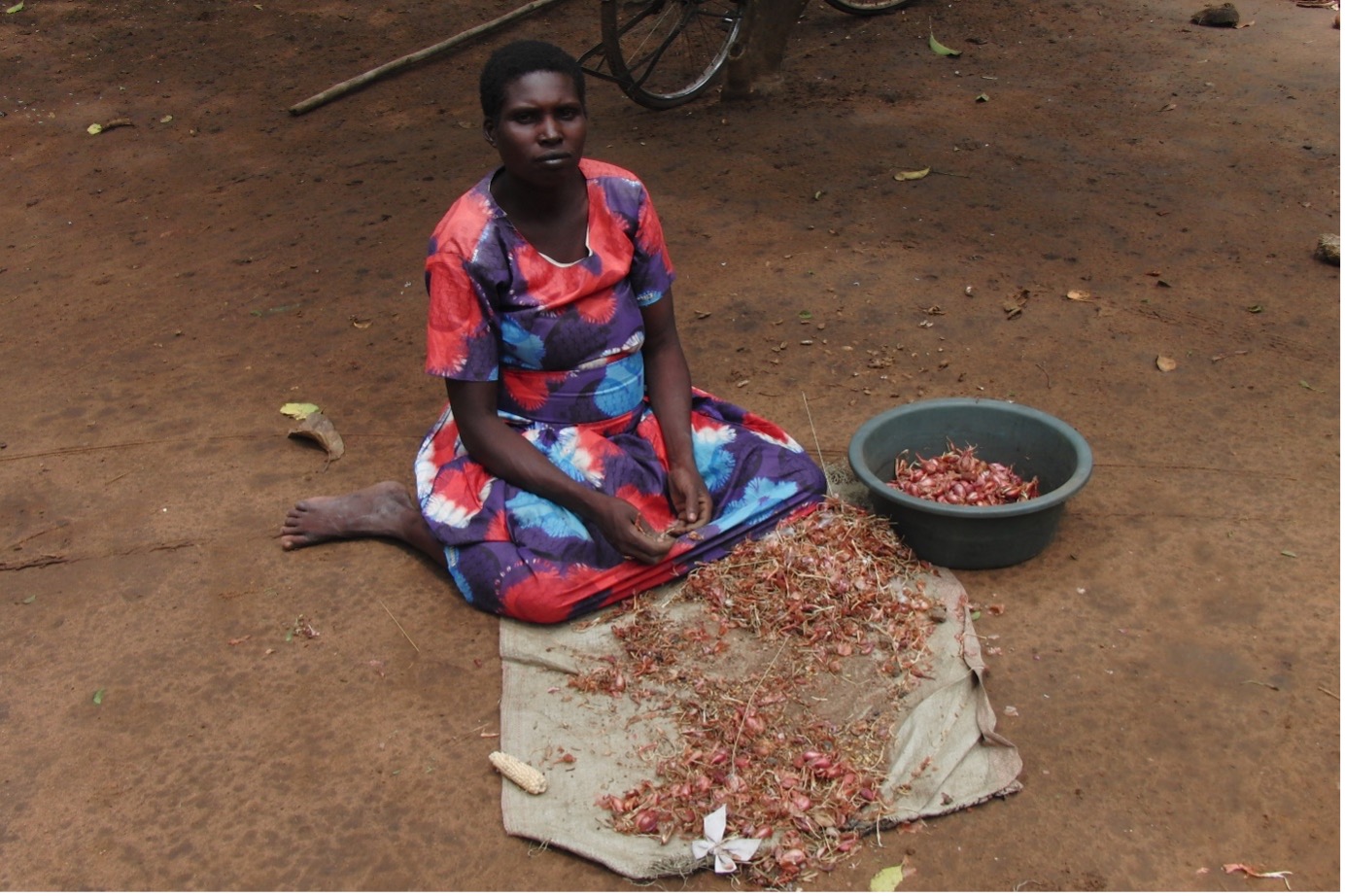
Actually, I started at the advanced age of 59 years in 2007 but have consistently worked very hard, and this sacrifice has propelled me to be where I am today. I believe that if I had ventured much earlier (for which I am now a strong advocate), I would have reached very far in terms of impact on the community as well as personal growth. Nevertheless, I do not regret but rather continue to put hope in people that it is not late to begin whenever and however you receive the inspiration and guidance but ensure you make the right choice and always be focused and consistent.
In terms of human resources, I do not have any employees helping me apart from my family members and dependents – children, grandchildren and especially my wife who is also elderly at 71 years of age. She is preoccupied mainly with watering the seedlings in the nursery beds and the young trees that need nurturing.
This activity that is in my backyard allows us all to participate in doing the work at varying stages as other family members and dependents attend school while others are variously preoccupied with activities outside the home stead. This communal approach minimizes the workload and has ultimately resulted in the improvement of the home environment. Accessibility to food, firewood, and timber is no longer a problem since most of the necessities are readily available within the home backyard.
How do you disseminate your message to the wider community other than those with whom you normally interact?
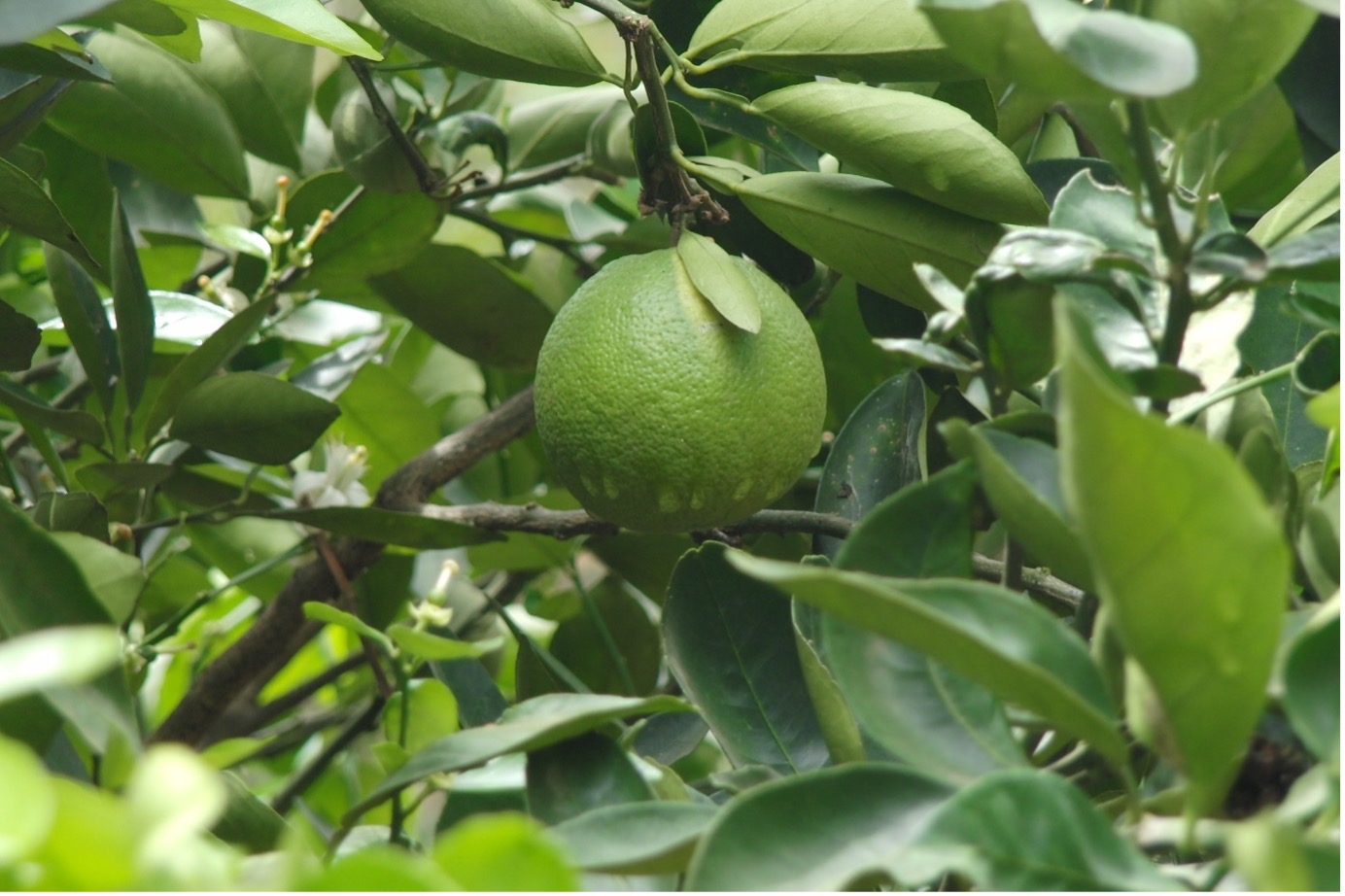
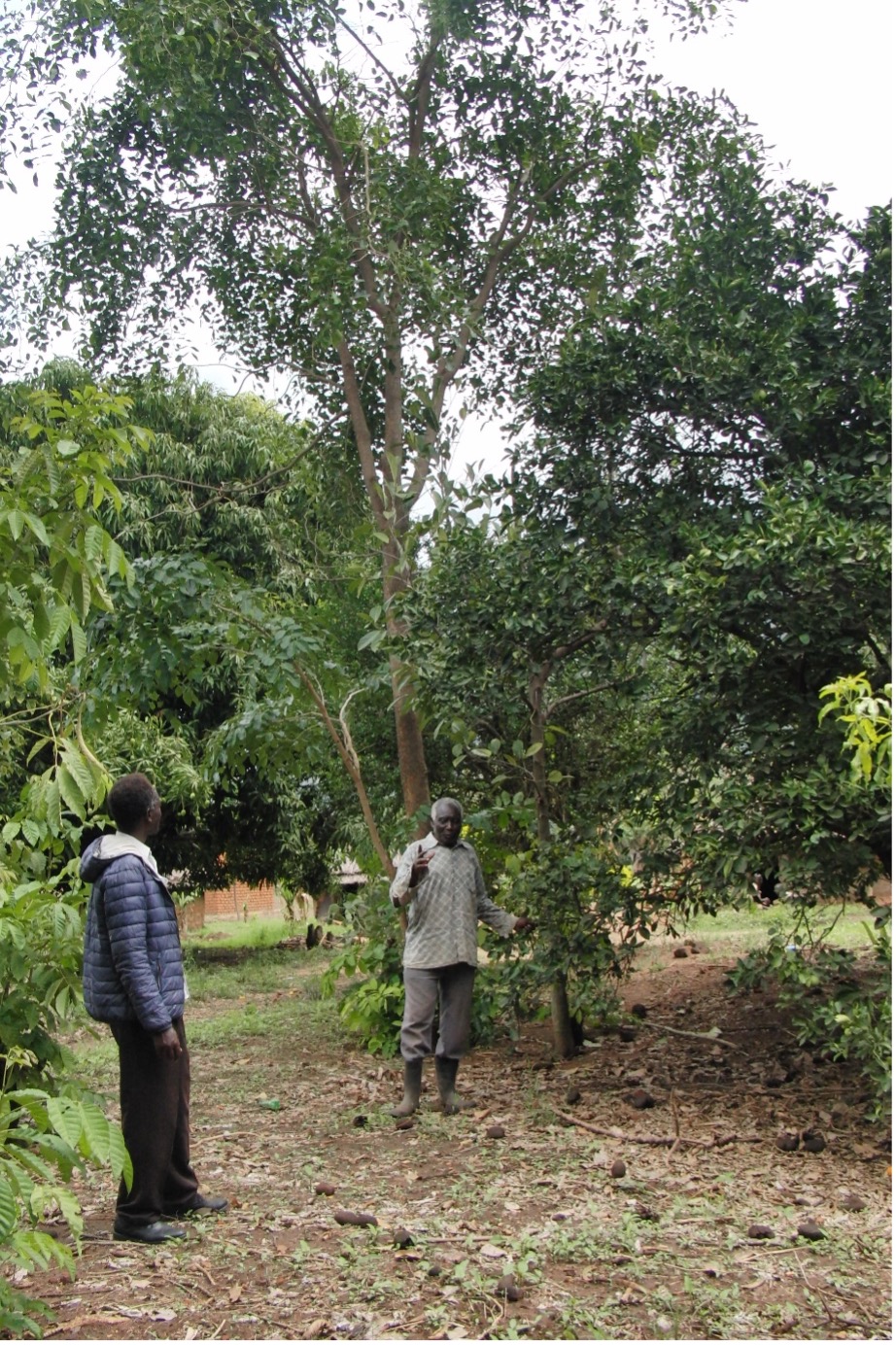
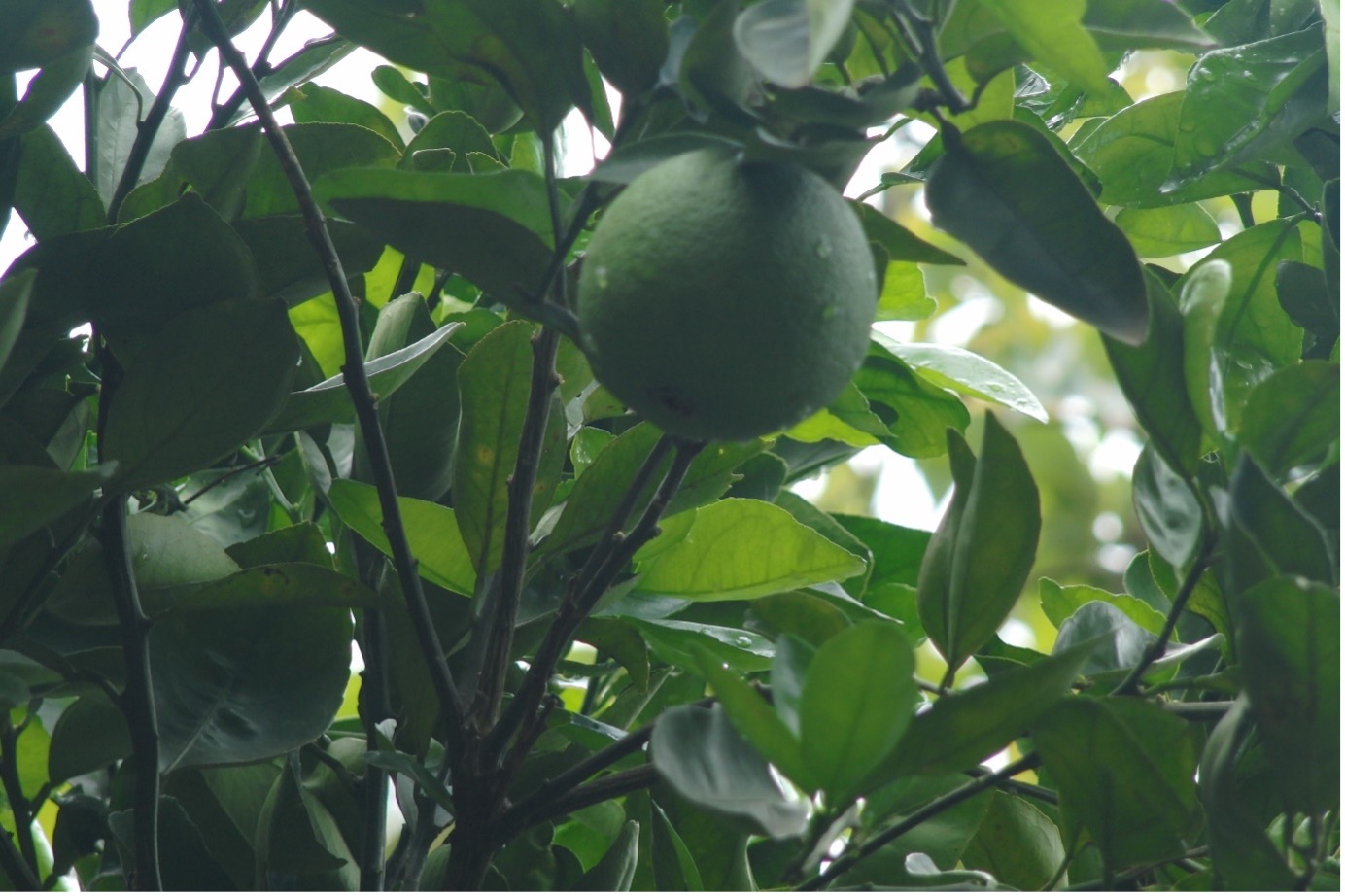
I have been fortunate, thanks to God, to have studied agriculture for about four years in various agricultural institutions in Gulu (now a city in Northern Uganda) as well as in Jinja (now a city in Eastern Uganda) and this has provided the basis for my knowledge and the impetus to confidently process new information aimed at improving agriculture with a particular bias in tree planting, protecting our environment while at the same time ensuring financial and economic sustainability and stability through these ventures.
I am privileged, having been spotted by GOAL a non-Governmental organization working in Kalongo that enlightened me further by providing the necessary exposure; taking me for bench marking and learning episodes geared towards broadening my knowledge and further improving my capabilities and thereafter enabling me to relay the knowledge and practices to targeted communities.
This I have ably done through demonstrating physically and through radio talk shows on local radio stations like PIWA, RUPINY and others in the subregion.
This NGO GOAL during the camp and post-camp recovery period sponsored some of my activities whereby, I engaged the local communities including the neighbouring sub-counties by teaching them and also supplying seedlings as well as providing support supervision.
Since the inception of this venture, what achievements have you realized so far?
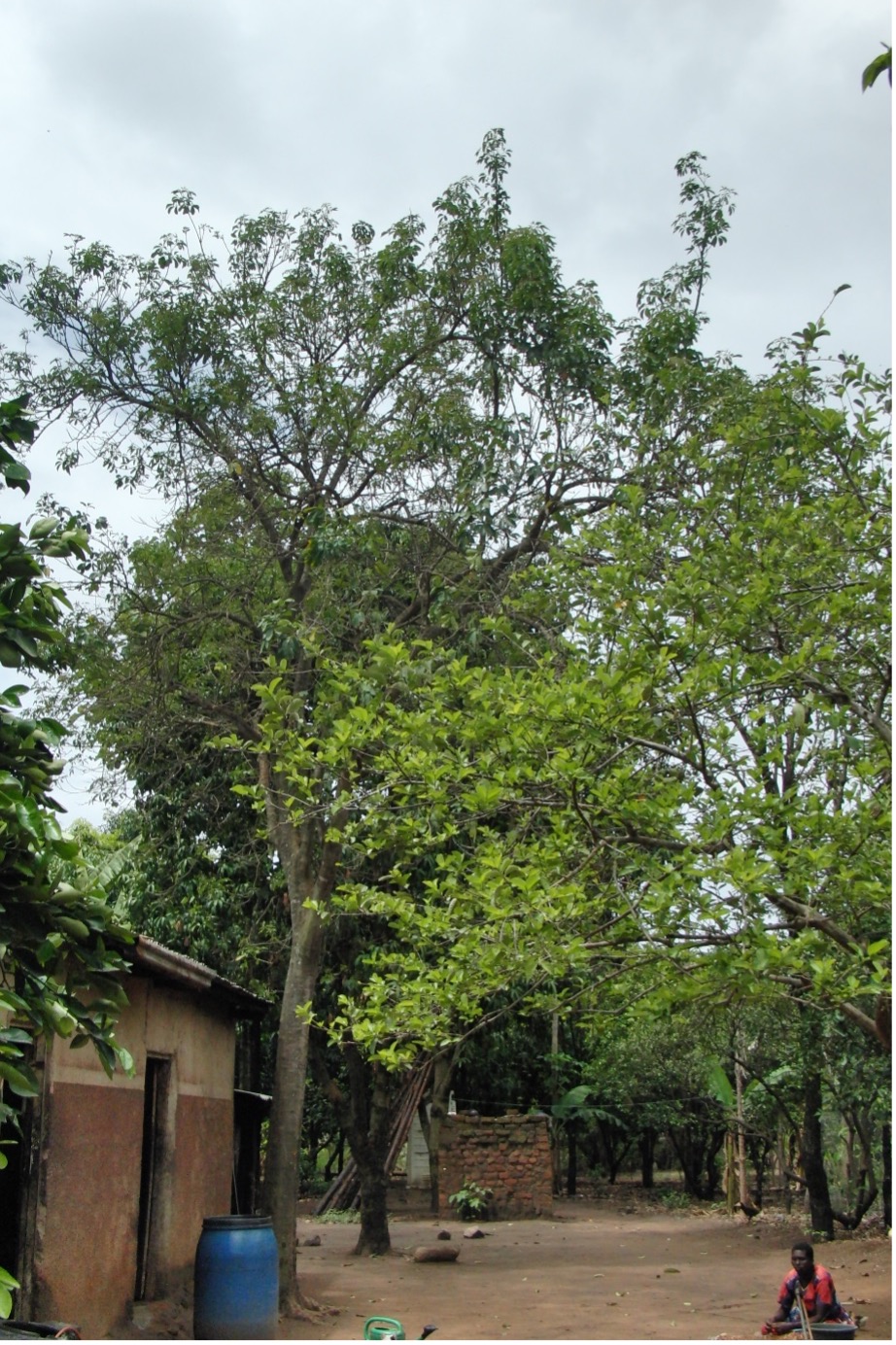

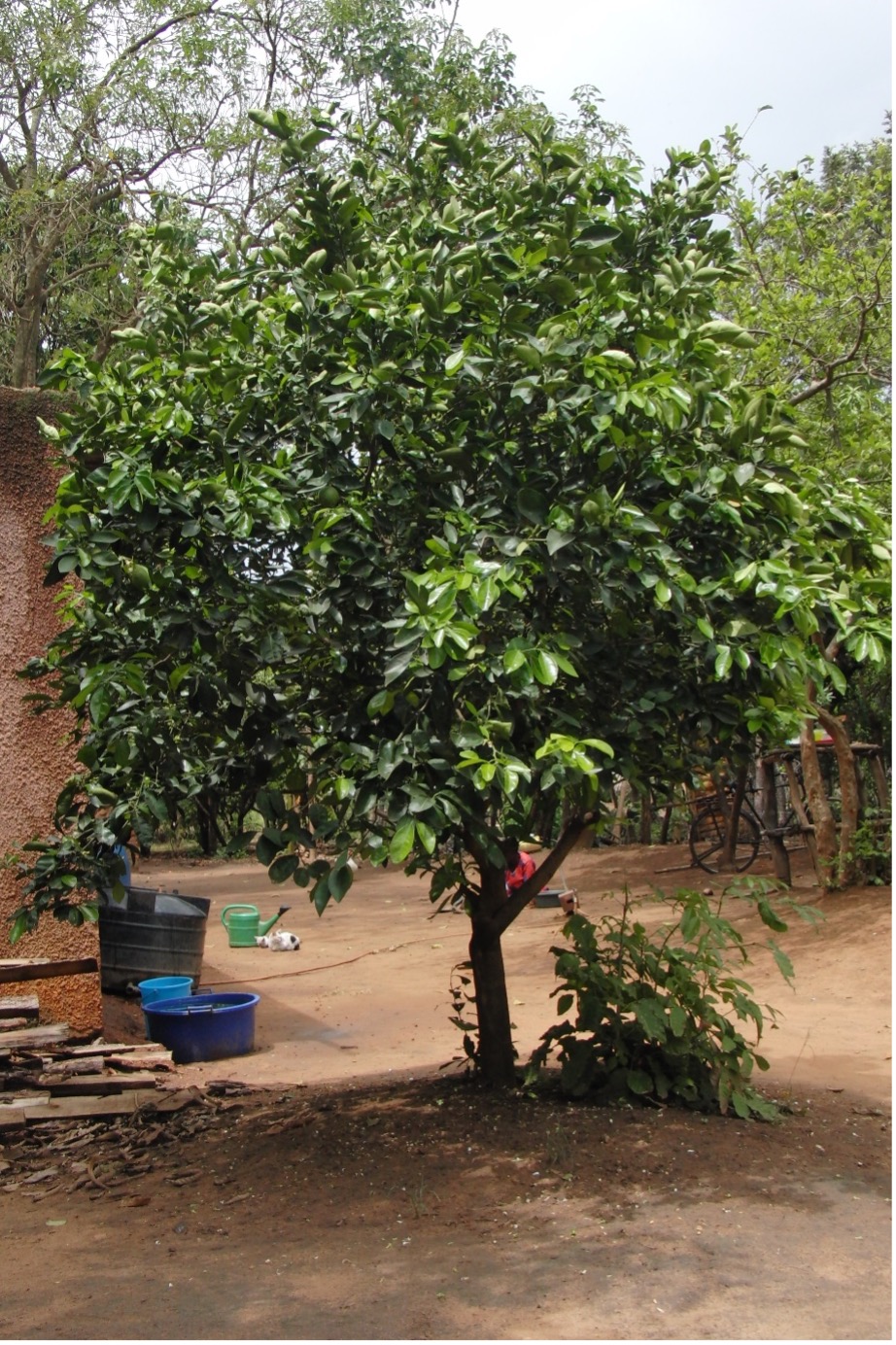
A number of things have been achieved including but not limited to;
- Planting trees with a main focus on soil conservation and also a source of income especially for the old people when you invest at an early age. Now I am benefitting from my investments for the last fifteen years I have engaged in this project.
- I have been able to build my house using the timber from the trees I have planted and also from the proceeds accruing from the sales of the products (timber, firewood, fruits, various seedlings) from my orchard.
- Supplying seedlings to the sub-counties of Paimol and Omiya Pacwa.
- A number of people have planted plantations of trees like eucalyptus and pine from which they are earning. While some young people are taking up the idea and implementing it.
How has this impacted your life and the lives of others in the community?



- I am no longer dependent on others to provide seeds for fruits like mangoes and oranges. I have acclaimed the capacity and expertise to propagate locally.
- Those who listened to me and others who were promoting the need to plant trees, especially during the insurgency and post insurgency/recovery period have for the past few years reaped from the outcome especially those who engaged in tree planting for timber, and those who planted oranges and mangoes are enjoying the fruits of their labour.
- The construction industry including carpentry workers in Kalongo Town have benefited from the outcome of this venture.
- An NGO GOAL in Kalongo sponsored a project to sensitize youths in Schools, unfortunately, this was a short-term project, but some of the students who benefited from these encounters are now doing well as they engaged in tree planting and vegetable growing which has enabled them to have a steady income to support themselves and their education. Another project they supported was planting trees on Kalongo mountain which has, unfortunately, not prospered well due to poor management on the side of the authorities as well as poor community appreciation.
How have you managed to keep this hope alive?
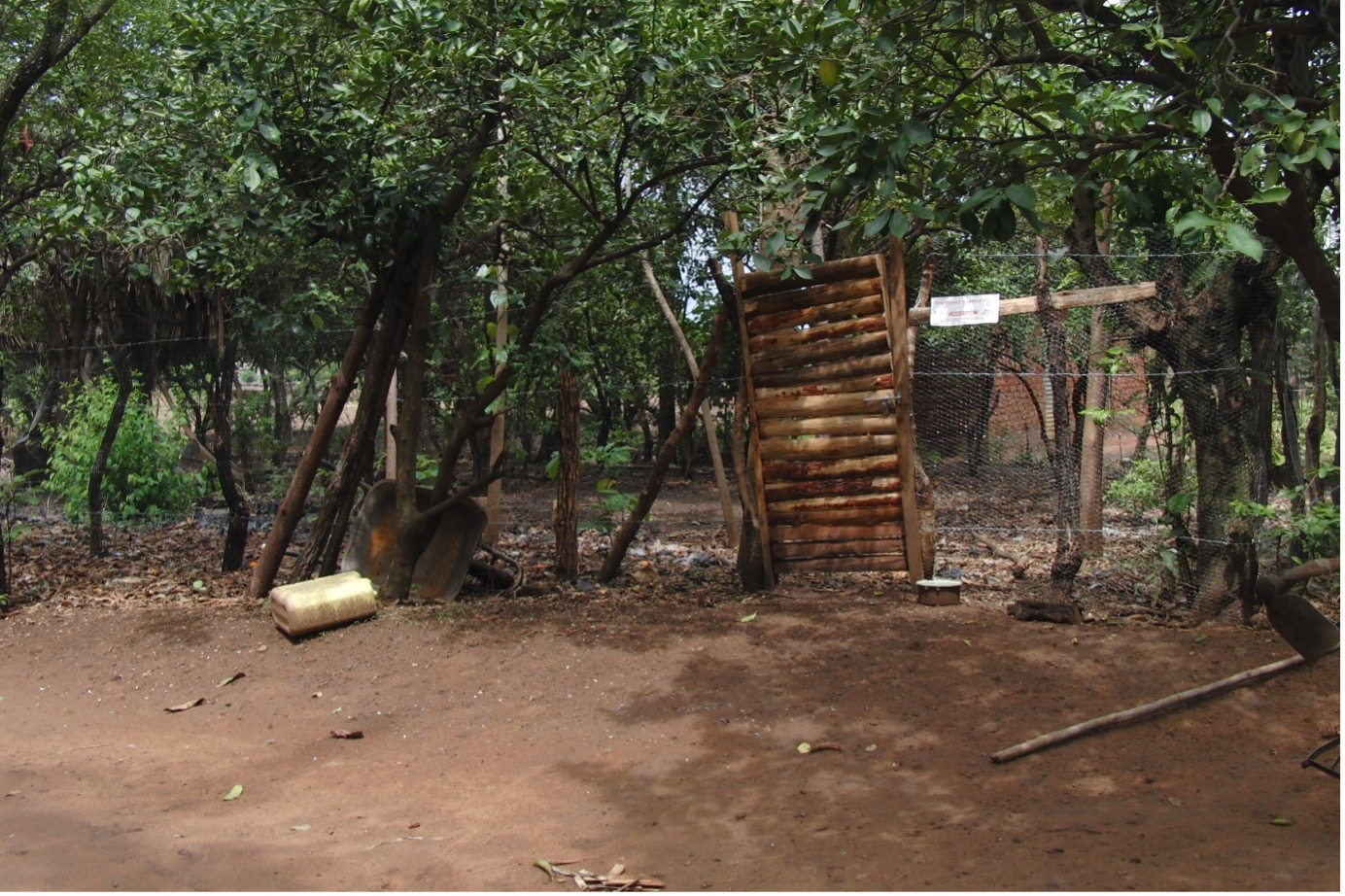
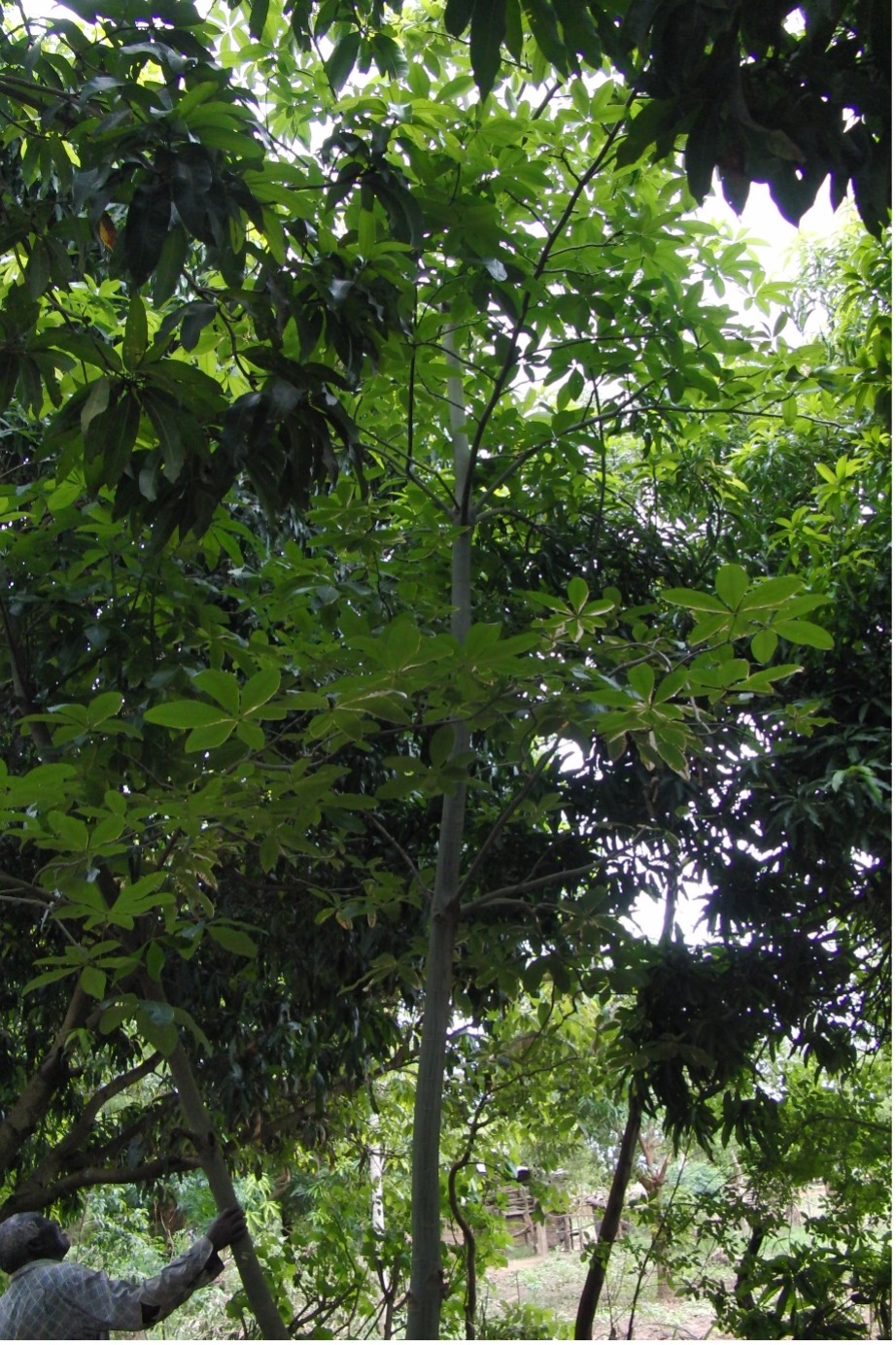
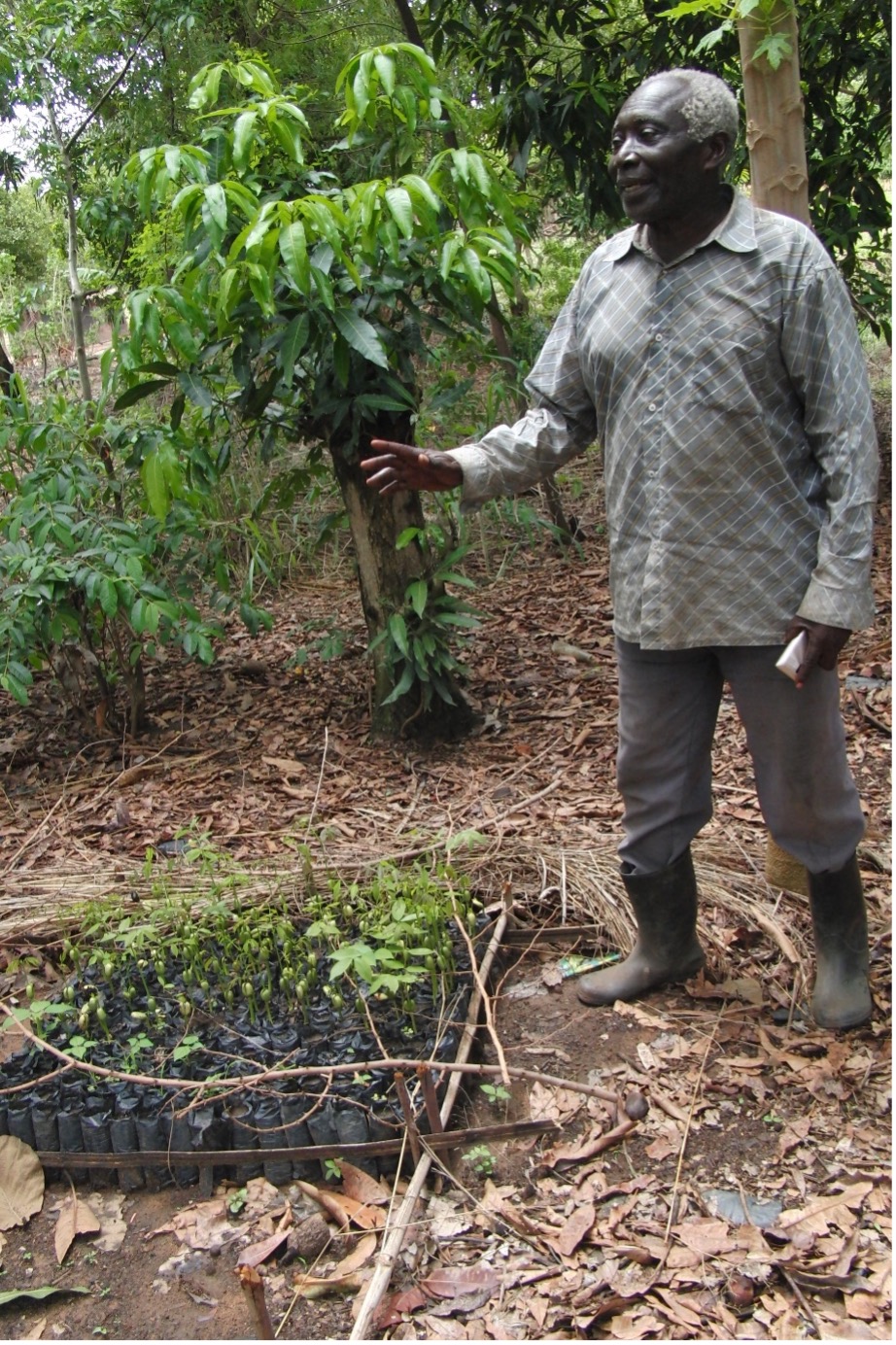
First of all, being a man of God, my preoccupation is to spread the gospel of the Lord that prospers the heart; but this can only be gotten if the body is nurtured so that when the time comes for us to leave this world our souls will be properly nourished. Secondly, the need for financial sustainability especially at an advanced age has prompted me to keep the light burning. If you move around in the community you will realize that many of our elderly people are suffering in extreme poverty because they never prepared themselves. I am also very cognizant of the fact that the young people some of whom were born and grew up during the insurgency period continue to engage in wasteful and meaningless ways of life that become detrimental to their wellbeing and therefore result in negative outcome experienced later at their advanced stage of life. Lastly, my passion for the environment, we live in an ecosystem where we coexist with nature and depend on the environment for our existential survival, hence the need for conservation.
As is common with such similar initiatives, not all is always smooth. Have you encountered any challenges that have negatively impacted your activities?
A number of inputs are necessary for the value chain, some of these have been challenging namely;
- Water shortage especially in the dry season has been problematic, though I have tried to mitigate this challenge by connecting to the national water but this also does not come cheap; the increased cost of paying the water bills due to the high level of consumption of water needed especially for the nursery beds and also for the young plants that have just undergone transplanting.
- Pests damaging the seedlings and the high cost of the pesticides, most of these pesticides are not readily available in Kalongo, and when available the costs are often than not exceedingly high.
- Low uptake by the community due to ignorance and sometimes government programs that may flood in certain seedlings that would then stifle demand.
- Scarcity of seeds in Kalongo Town, one has to travel to the nearby towns and cities to get some of these seeds.
What advice do you give to the community?
- I encourage the community to embrace tree planting both for fruits and timber at household level. I encourage the local authorities to pass a bye law and enforce it positively on the population so that they embrace this for their own good. Being a live example and others who have seen the light, we would use this leverage to better highlight the importance of engaging in this noble cause. You can earn 250,000 shillings or more from a single tree.
- Nowadays there is scarcity of firewood, planting trees will enable you to solve this problem in the face of current development and diversification.
What is your vision in the short to mid-term?
- Need for projects aimed at creating awareness, especially for the young people in schools and communities.
- Have a major stakeholder meeting at least once every year to broadly discuss benefits of planting trees as a source of income (securing the future in old age) and conservation of the environment.
- Need to acquire more land and expand my activities.
What is your parting short to the populace?

As I mentioned earlier, when you clock 51 years of age and thereabout, this kind of foresight investment I have talked about will come in handy to greatly enhance and smoothen your life now at your most vulnerable state due to advanced age; in this period, you are at the point of diminishing returns; no longer strong enough to till the land, the children would have grown up and moved on with their lives leaving you to your own peril.
If you invest like the way I did, you won’t find old age to be a debilitating experience. Old age has become a very sad and painful experience in this time and age. The social fabric that used to glue families together; where the elderly are taken care of by members of the family is unfortunately eroding. As for my wife and myself, we are somewhat cushioned and no longer experience any unnervingly adverse effects of old age because we depend now on the trees we planted for food, firewood and as a source of income to meet other needs like buying food, soap, sugar and also meet our health expenditures. We do also plant vegetables which is less demanding and any surplus is also sold away as an additional source of income.
I am also very much cognizant of the fact that new variety of trees and other plants that can do well ought to be introduced and multiplied. I have now introduced groundnut variety that grows as a tree and bears groundnut seeds, black tick which takes fewer years to mature among others.
I want to leave you with the following principles that I believe are a good guide, especially for the youth and middle age persons to consider and follow.
I believe and consider life in four stages and I always endeavour to educate people to be aware that a number of things need to be guarded against otherwise one becomes prone to the harsh reality and consequences emanating from lack of proactive preparedness.
Stage I: From birth to 12 years still depend on their parents for basic needs like; food, shelter, health and education. It is a stage where children observe and begin to mimic the behaviour of the parents and adults within their surroundings and this shapes the character and behaviour of the child oscillating anywhere between good and bad. It is at this age that the child will begin to appreciate and be conditioned towards such a way of life to which he or she is exposed. If the environment is such that good behaviour is encouraged and practised, the child will conduct himself/herself in a morally upright and productive manner, but if the environment portrays drunkenness, thieving, laziness and other wayward behaviours, the child will also tend to copy and conduct himself/herself in this incorrect line because the child will perceive it as normal just because the people the child looks up to are doing it that way.
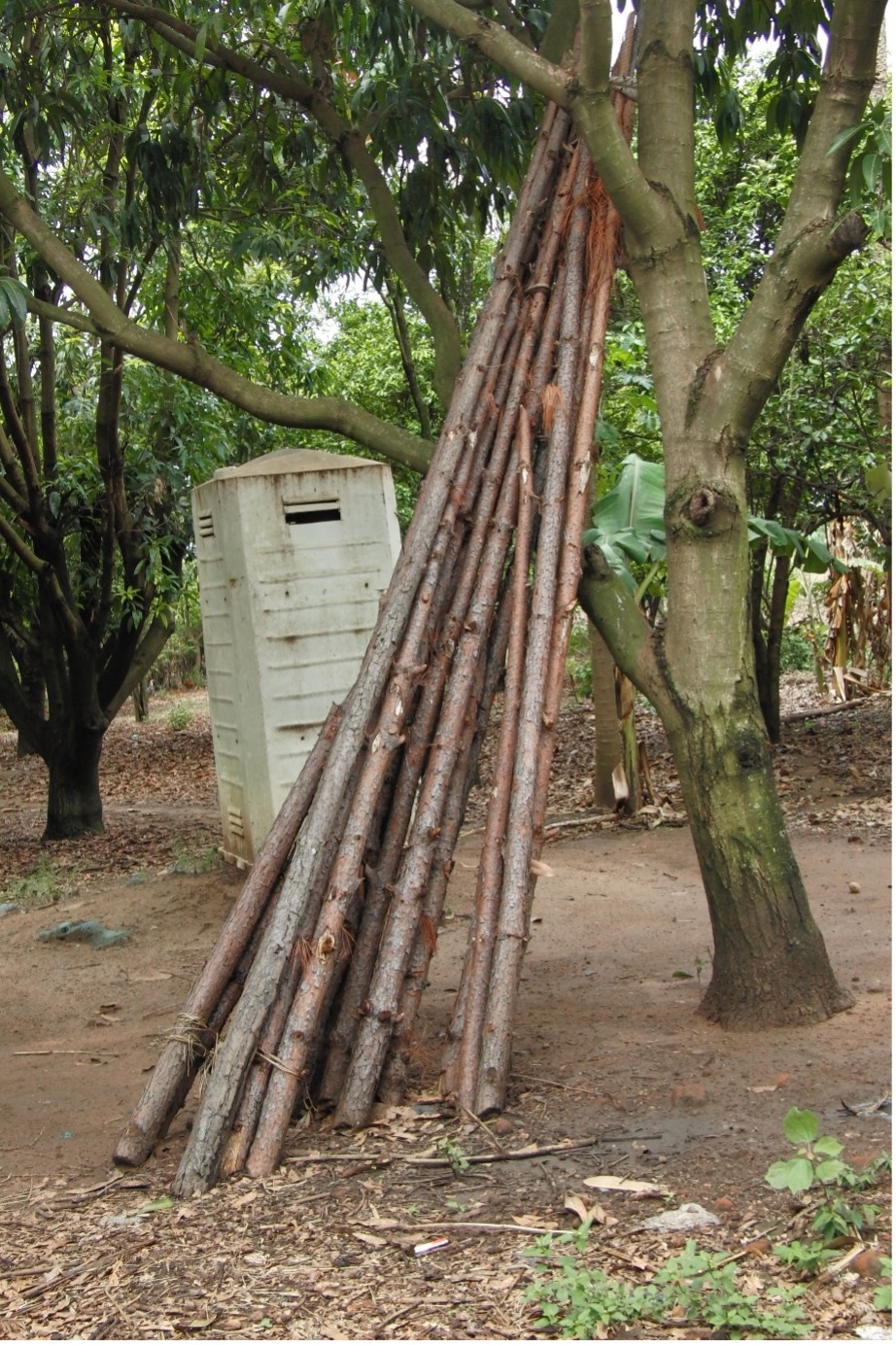
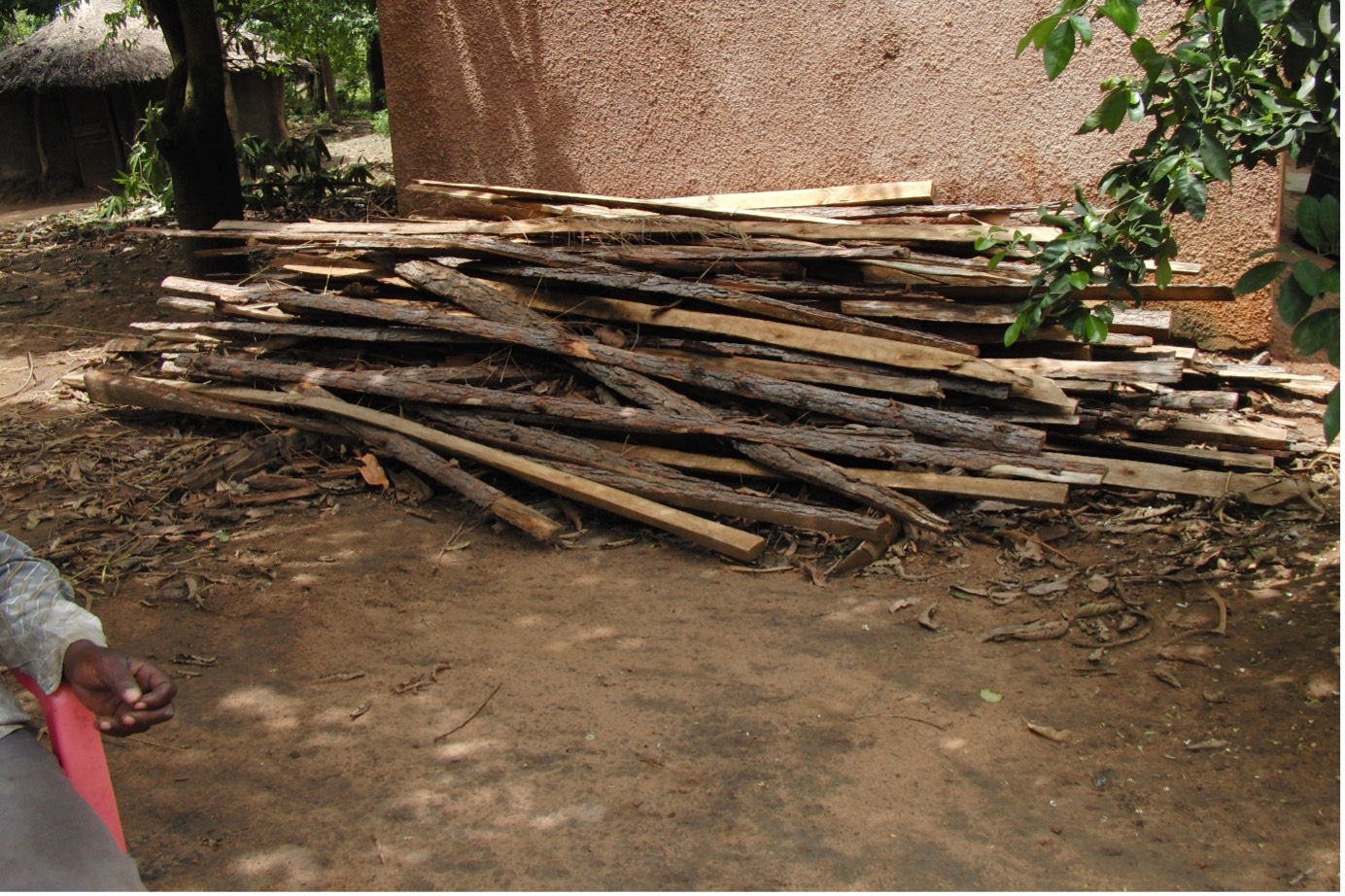
Stage II: From 13 to 25years a child now develops into youth, adolescence into adulthood. This is the age bracket where one gets into the practical experience of what he or she has observed and seen in the earlier stage of life as the modus operandi of how to conduct himself/ herself. If the child has copied positive values from the Parents or environment, such a person will be a serious hard-working person in school and in the community but if a child has adopted negative attributes then; for sure such a person will begin to waste away opportunities likely to shape his or her life into a responsible citizen; vices like alcohol, drugs, prostitution and theft would become the order of the day.
It is at this stage that a promising child begins thinking about his/her future, completing education, starting up small income-generating activities, planting trees and other self-improvement projects.
Stage III: 26 years to 50 years. This is the saving year; this is where you start to plan for old age; acquiring property – Land, housing and other essentials, getting married and engaging in more serious investments like planting trees the way I have done (even though I started at over 50years.) Other ventures like rearing domestic animals and birds can also be started at a more serious level.
If you have wasted the adolescent years, you will have nothing worth showing for your existence in this world, you will begin to believe that the world is against you and subsequently find faults with everybody which will compel you to resort to underhand methods to eke a living; like begging, stealing manipulation, deception and you begin to hone on other such dangerous vices as enumerated in stage II.
Such a person can be equated to a living dead because he/she will not be responsible towards himself /herself and towards society and therefore becomes a liability. Such persons only spread disaster and pain around them as they kill themselves slowly with their kind of life.
Stage IV: 51 years till death. This is the retirement age, whatever you did in the saving years will help you enjoy your life on earth. At this age, most are practically lonely as fate and destiny distance you from your loved ones who may most likely be in stage II and III of their lives and therefore would be more preoccupied with their personal affairs and therefore have little or no time to spare for you. Many who have failed to adhere to the principles as outlined in the former stages would end up in desperation and dependency which is quite a disheartening and painful experience. This is precisely why I strongly advocate for a realistic solution to avert such painful and distressful experiences in the final stage of life.
In conclusion, old age is inevitable and therefore calls for preparation for the future by indulging in investments like tree plantation. If you do this, any need that may arise, you can pick the fruits, get firewood, and timber and sell them to raise the money necessary to sustain your life.
Life should not just be lived on a day-to-day basis but rather planned ahead as it will most likely be too late to change the trajectory in this last stage of life.
At this stage of life; as your age advances, you become physically weak, prone to sicknesses, senility also creeps in and you virtually become dependent as a child. Life is like a curve that rises to a peak (from Childhood to middle age) and drops to the lowest level (Old age, retirement and eventually death).
Always put God first in every action and inaction you undertake and remember that it requires both prayers and early planning, determination and hard work to enable you to realise the success you envisage.
I thank God almighty who has sent you The Kalongo Times for this very great opportunity to communicate my thoughts and showcase what I am so passionate about.
I believe that through this interview many people will learn about what we are doing and appreciate, copy and help enhance this cause.
May the almighty God bless your wonderful work.
Thank you
Mr Obonyo Alex
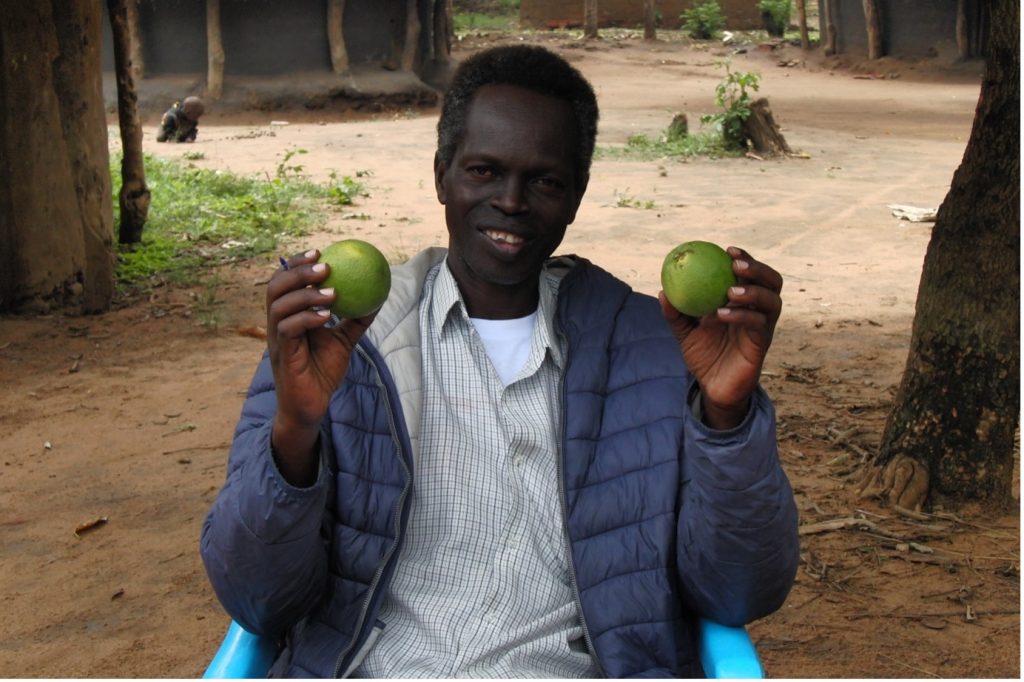
It has been a privilege and great honour talking to you Bishop Lamot about your experience and your desire to set up a mechanism in place for a sustainable old age while at the same time conserving the environment with a particular focus on tree planting. All this in spite of your busy schedule as a religious leader.
I thank you for your prayers and appreciation to the Kalongo Times and more especially this amazing initiative you are engaged in. We wish you all the best in your endeavors and hope the young people will emulate you. Thank you and may God continue to bless you.

Obonyo Alex is The Kalongo Times, Bureau Chief, Kalongo Town Council. He currently serves on the Board of Governors at St. Charles Lwanga’s College Kalongo and on the Pader Abim Community Multipurpose Electric Co-operative Society Limited (PACMECS); a cooperative dealing with the distribution of electricity in the northern service territory. He is a member of the Board of Directors chairing its Finance and Human Resource Committee. Between 2016 to July 2018 he also served on the Board of Governors at St. Kizito Hospital Matany in Karamoja. Alex worked at Dr Ambrosoli Memorial Hospital for 28 years (1990 to 2018), and for 14 of those years, he was the Hospital Administrator. He has a Masters of Science in Health Services Management and a bachelor’s degree in Administrative Studies. Obonyo Alex is also a local Kalongo businessman.
